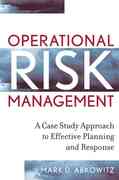Question
2.Assume Adam borrows $1,000 from Eve and gives her a Note which matures in 6 months and the borrowing rate is 8% per annum. None
2.Assume Adam borrows $1,000 from Eve and gives her a Note which matures in 6 months and the borrowing rate is 8% per annum.
None of the above statements are correct
If the note is paid on maturity then Eve will record $80 in interest income
If the note is dishonoured on maturity then Eve will set up a receivable for more than $1,000
If Adam prepares financial statements prior to the maturity date of the note, he will have to make an adjusting entry to set up the interest income earned
If the note is paid on maturity then Eve will record $40 in interest expense
4.On December 31, 2003 Nomad Company has a $150,000 debit balance in Accounts Receivable. The Allowance for Uncollectible Accounts has a $2,100 debit balance. Sales total $800,000. From aging its accounts receivables, Nomad estimates that $14,000 of its accounts receivable may be uncollectible.
The Uncollectible Account Expense would be:
$16,000
$16,100
None of the above
$14,000
$11,9000
6.Ronda's Corporation factored (sold) a two month 12% $3,000 note to a collection agency (Bridge's Inc.) for $3,030 one month after issuance. Which of the following statements is true with regards to this transaction?
The note receivable of $3,000 has now been pledged as security to Bridge's Inc.
Ronda's Corporation will record a journal entry to Dr. Note receivable $3,000. Dr. Interest Income $30 and Cr. Cash $3,030
None of the other alternatives are correct
If the note was factored with recourse, we do not need a note in the financial statements
It is currently Ronda's Corporation's obligation to collect the note of $3,000
7.Which of the following is a valid alternative action for an organization to take to minimize credit losses?
None of the other alternatives are correct
Force collections with expensive penalties for late payments.
Review accounts receivables once per year, preferably at the beginning of the accounting period.
Implement a system of formal collection policies.
Never sell on credit.
Step by Step Solution
There are 3 Steps involved in it
Step: 1

Get Instant Access to Expert-Tailored Solutions
See step-by-step solutions with expert insights and AI powered tools for academic success
Step: 2

Step: 3

Ace Your Homework with AI
Get the answers you need in no time with our AI-driven, step-by-step assistance
Get Started


